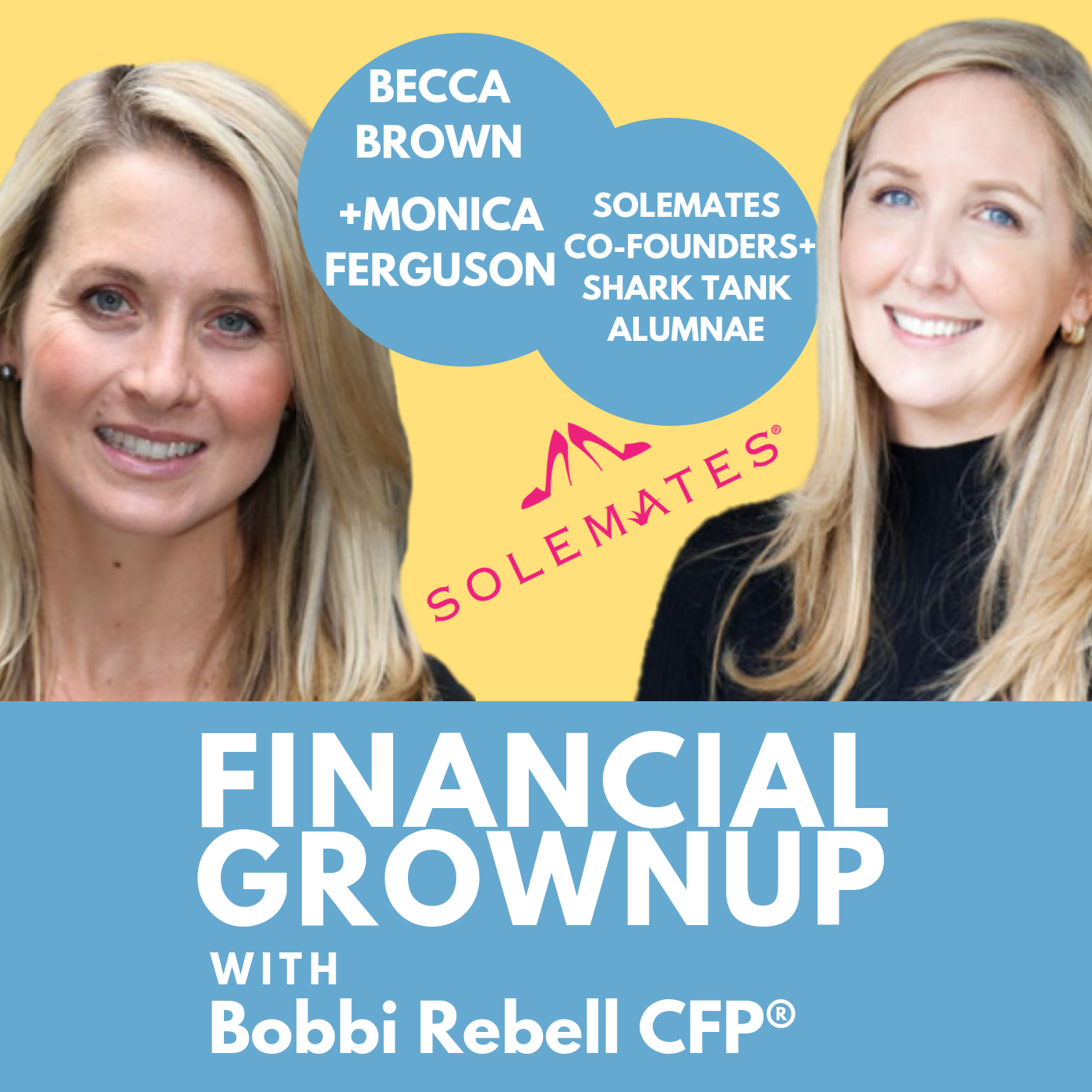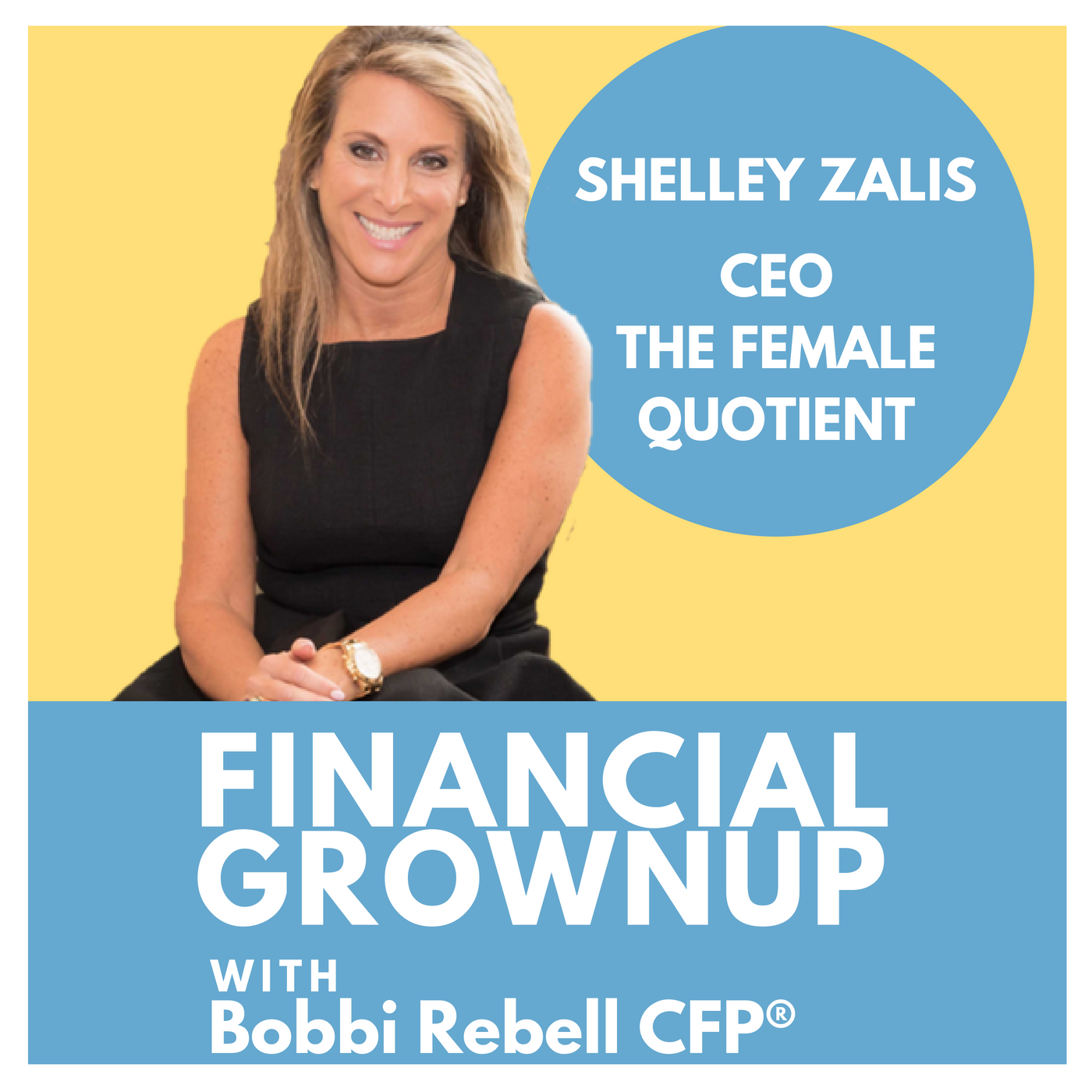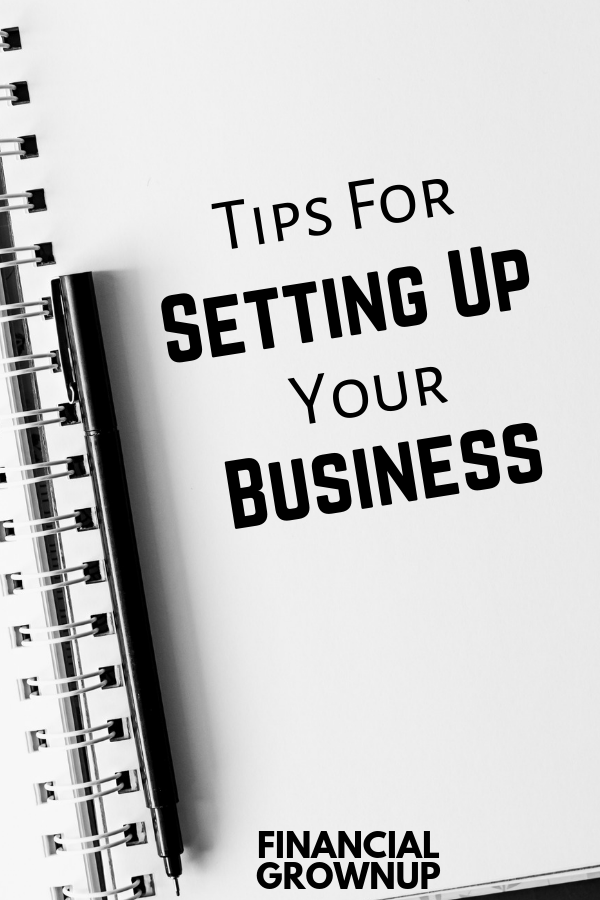Traveling like a grownup can be overwhelming. Pavia Rosati had the world class intel everyone wanted. But she and her Fathom co-founder thought they needed a business savvy partner. Except they never found Mr/Ms. right. So they stepped up their game and did it themselves.
In Pavia's money story you will learn:
“You need to think about time as money when you travel. You don’t have an unlimited time budget and so make sure you are spending your time as wisely as possible.”
That's right. When we started this business about nine years ago, we didn't really have the money locked up tight. We didn't have a full proof business plan. We had ideas for how to make money, but we had the vision and we had the drive, and at a certain point, we stopped talking about it and we're like, okay, we're just going to do it. In hindsight, it would have been better if we had also had somebody who was kind of the money yin to our content and experience yang.
Bobbi Rebell:
Was there any business plan? Any revenue projection plan?
Pavia Rosati:
There were. There were. We didn't think about this at all. Digital media is, it's a moving target right now right. We had plans for where the money would come from, but when the industry changes, and the ad market changes, and people's online behaviors change, you need to be able to adjust your business models accordingly.
Bobbi Rebell:
What happened specifically? What was your original plan, and then what happened?
Pavia Rosati:
The original plan, we actually did have somebody who was going to come on board as the business partner. At the end, she said, you know what, I just can't take the risk. I don't have the entrepreneurial courage that it takes to go out and do this. What's funny, when you launch a business, it's like dating. Everybody has you, oh, you should talk to this person. Oh, you should talk to that person. I swear, in the first year of the business, I had coffee with someone else, and someone new.
We ultimately made the decision of, you know what, if the alternative is not to do this, or to wait until we find the right person, the moment might be too late, so let's just do this and get this out there, and then see where we end up.
Bobbi Rebell:
What happened? You didn't have a business partner. What actually happened in terms of the business part of Fathom.
Pavia Rosati:
The business part of Fathom is [Gerilyn 00:05:13] and myself doing the business. It means that we're the ones who hustle for the deals. It means that we're the ones who close these deals. It means that we've discovered our inner sales people, and we've been able to do it because we've been able to stay afloat, and we've been able to keep doing this. But, the question is, had we had somebody who was a serious, serious business person, where could we have been, and how much more could we have done, and how much more money would we have made?
Bobbi Rebell:
Interesting. Can you think of any examples where you felt the real lack of that?
Pavia Rosati:
There was a project that we were pitching that we were very excited about working on. The person that I was negotiating with said, here's my budget. I said, hmm. Yeah, I was thinking three times that. I thought, oh God, this is when it all falls apart. Instead, he came back and he said, okay, that's fine. That was a great, very lucrative project for us.
One of the times when it really would have been helpful to have some money and some business muscle behind us was a few years ago when we launched these fantastic honeymoon guides to Italy. I love the fact that we cover the whole world. The question we get again and again from people who are seasoned travelers, or people who never travel, is help me figure out my trip to Italy. So we came up with these fantastic itineraries, three days, in Florence, Venice, Rome, and the Amalfi Coast. Think of it as a concierge in your pocket. These guides are amazing. Anybody who found them and downloaded them was like, Oh my God, this is perfect. One small guide and my whole trip is planned.
Had we had somebody, however, with a lot more marketing experience, we could have gotten the word out about these things out to the thousands and tens of thousands of travelers who would have wanted these for their summer vacations to Italy.
Bobbi Rebell:
You're doing the work but you're not getting the attention that you want. How have you solved that, or have you?
Pavia Rosati:
Finding an audience is the ongoing struggle that anybody who is creating content, is struggling with all the time. There is no perfect answer to this. Getting our great work to the people who need it and who are looking for the information, is the constant struggle that we face, but that we're also not alone in facing. I mean, the internet is wonderful because it gives you access to everything, but guess what, everything is too much. There's too much noise. We always say that we do everything we do at Fathom to really cut through the clutter. To instead of giving you everything, we give you a really tight edit so that it's not overwhelming. So that you can read one article, and base your Caribbean trip just on that one article.
In Pavia’s money lesson you will learn:
“Nothing makes me more sad than being in a foreign country and seeing everybody sitting at the table looking at their iPhones. ”
Even though you're driven to do something, imagine what will happen if you don't have a safety net. Works for your plan B, works for your plan C. Have all of that stuff figured out, take the time to do that and then dive in. You will end up on much more solid ground.
Bobbi Rebell:
Your safety net was relying on each other and figuring it out, and having the courage to act as your own advocate. As in the case when you just mentioned where you got triple what they wanted to pay, because you stood your ground.
Pavia Rosati:
Yes. Correct. Because we stood our ground. Listen, we've lost out on things also. It's not all, we've lost out on things because we are smaller. The challenge and the reality of the ad market place right now online is a lot of companies are just after millions and millions of eyeballs, and worried more about the numbers than the quality of what they're getting. We deliver on quality, but what we sometimes lose out on is quantity.
Bobbi Rebell:
That's something that I truly believe is evolving. I think we're seeing with a lot of, for example, the influencer market. People are moving away from, or at least paying more attention to, the micro-influencers, and paying less attention to or, maybe being more realistic, about these giant influencers. The stickiness is not always the same as a micro audience that might be interested in say a podcast, or a blog or whatever, that's very niche. I think there's a lot more interest in that because the value of quality and engagement. You probably have a very engaged audience.
Pavia Rosati:
We do. We have a very engaged audience. The only criticism we ever hear is, I wanted to go to fill in the blank on the most remote place on earth, and you don't have a full guide yet. Work faster.
In Pavia's everyday money tip you will learn:
“The internet is wonderful because it gives you access to everything but guess what? Everything is too much. There is too much noise.”
Correct. Of course my tip is going to be about money. You're absolutely right. You need to think of time as money when you travel. You don't have an unlimited time budget. So make sure that you're spending your time as wisely as possible. When it comes to money, there are really simple things that you can do before your trip to make sure that you have things taken care of. Number one, not every place you go is going to have the most reliable ATM machine that's working where you need it to work. So maybe, plan ahead and have some cash available, if you're traveling in a foreign currency, to get you through the first day or two, until you can get to an ATM or a bank where you can change money.
Similarly, plan your tips in advance. Have a couple of euros in your pocket. Have pesos in your pocket so that you don't have to be fumbling for change when you want to give a porter a tip, or worse, give someone a dollar bill, because there's nothing that's worse than handing someone a $3 tip, then they would have to go to the bank to change that? Terrible.
Bobbi Rebell:
Right. We sometimes, in America, assume that everyone really wants dollars, and sometimes they don't.
Pavia Rosati:
That hasn't been the case since like 1960. I have to tell this to my Dad all the time. He's like, I'll leave $100. I'm like no papa, they don't want to have to go to the bank to change some money. No. Other things to think about in terms of time and money when you're traveling is, invest in the things that are going to make your trip better. Invest in really good suitcase, so that you're sure that your stuff arrive safely. When you are thinking about auto insurance, know before hand, what does your credit card cover, what doesn't it cover. When you're getting on a plane, know what your points are. Does your credit card give you access to lounges at the airports? If so, which one.
I keep a file in my contacts of every lounge of the airports that I go to that I know which I have access to, through my credit card.
Financial Grownup tip number one:
Sometimes, the perfect partner is really late. Pavia and her partner were searching for a business oriented partner to add, and they never found them. They had to step up and just do it themselves. It wasn't their plan, it wasn't their ideal, and it still may change if they find the right match. And yeah, things might have been better if they did find that match earlier, or not. But just like you have to live your life even if you haven't found the perfect, let's say, romantic partner. It's the same with business. You got to keep moving. The right business partner may have not been there for the startup phase, but maybe there's someone that's right for them now that the company is more mature. They're looking, but they want the right fit, and that's a good thing.
Financial Grownup tip number two:
If you are a workaholic, yes, I'm looking in the mirror. One chapter that I loved in the book, travel anywhere and avoid being a tourists, was about the coolest coworking spaces. Here's the things everyone. Work should not keep you from traveling. But that doesn't mean that everyone really, especially maybe you're an entrepreneur, you have your own business, or you have a job with a lot of responsibility. Maybe you really can't take the time off that you feel that you need, or that people outside are telling you that you need. Maybe it doesn't make sense to put up walls between work and life and to go on this unplugged vacation. Maybe, you're going to enjoy your vacation more if you can do let's say, three days of vacation, and one day in a coworking space in that foreign city, or that other city that's not where you work that you're going on vacation with. Maybe that's actually going to help you stay on top of things, enjoy things more, focus on the days that you are "on vacation", but you can do work occasionally in that city and remain tied to your business in a ways that gives you comfort. So that when you come home, you aren't in catch up mode, and also frankly, before you leave.
Episode Links:
Pavia's Book Travel Anywhere (And Avoid Being a Tourist)
Check out Pavia's website -
www.FathomAway.com
Follow Pavia!
Instagram - @FathomWayToGo and @PaviaNYC
Pinterest - @FathomWayToGo
Twitter - @FathomWayToGo
Facebook - @FathomWayToGo
Some of the links in this post are affiliate links. This means if you click on the link and purchase the item, I will receive an affiliate commission at no extra cost to you. All opinions remain my own.















